Strictly Personal
Dutch have owned up, great, but how enduring is slavery’s impact? By Jenerali Ulimwengu
Published
10 months agoon
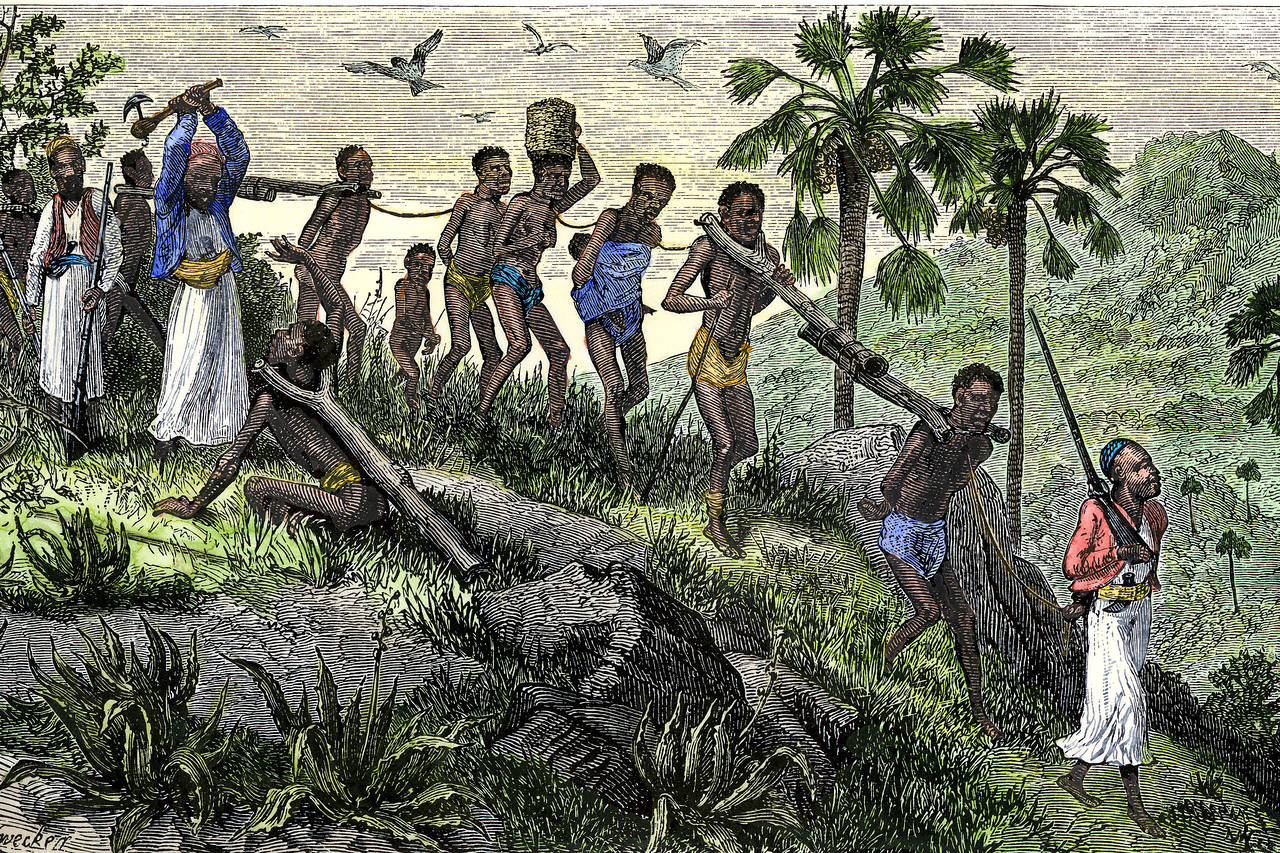
The Dutch have done it, and maybe it’s up to the others to follow suit. I wrote in this column a year ago about the man who was England’s Prince of Wales but is today that country’s King Charles lll and his sad reflections on the institution of slave trade.
I would like to revisit, only in part, what the then prince said, to refresh our memory: “I cannot describe the depth of my personal sorrow at the suffering of so many as I continue to deepen my understanding of slavery’s enduring impact.”
I thought this was a historic moment and said so. Now, recently we have heard the King of the Netherlands coming out on behalf of his country to go a little better than Charles, by actually issuing an official apology for his country’s participation in the evil commerce.
Whereas the British prince had expressed his “personal sorrow”, the Dutch monarch has actually apologised, and there is a difference.
During an occasion to mark Holland’s links to slavery, the Dutch King Willem-Alexander said, “On this day that we remember the Dutch history of slavery, I ask forgiveness for this crime against humanity. As your king and as a member of the government, I make this apology myself. And I feel the weight of the words in my heart and in my soul”.
In 2022, the Dutch King took an important step in preparation for his mea culpa, when he commissioned research into the role played by the House of Orange-Nassau in the slave-trade.
The inquiry revealed that between 1675 and 1770, at least $600 million accrued to the Dutch crown via the activities of the Dutch East India Company in the purchase and sale of human beings and “gifts” to the royal household.
A study done around the time found that the British monarchy took an active part in slave trade, employing slave labour in the production of tobacco in Virginia, where Charles’ ancestor named Edward Porteus is shown to have kept up to 200 slaves obtained through dealings underwritten by the House of Stuart and the City of London in collaboration with the Royal African Company (RAC), a most vile operator in the trade.
The facts regarding the multiple complicities are legion, and I doubt if we will ever get to the bottom of this sordid business but suffice it to say that the fact of coming out and apologising is a good first step to take.
It goes in the order of “owning up,” which my teacher at middle school, William Vyankero Migembe (to whom all my respect!), used to emphasise to us as errant little urchins, again and again: “To save your colleagues from collective punishment, come out and own up.”
It is in the spirit of owning up, I think, that the Dutch king has done this noble deed.
It should be emulated by all those who find out something nefarious in their history, especially when the actions of their ancestors caused such monumental and grievous harm as the slave trade.
It may be that many more nations and people will be called out for something their ancestors did in the past to harm others.
For instance, even the Dutch — as well as many other European tribes — were, at some stage in history, victims of the slave trade practised by the Ottomans on the Barbary Coast, and many other examples.
The story of the African slave trade is replete with heart-rending instances of inhuman treatment meted out to the people who were used as draught animals.
Africans are not the only ones to suffer this fate. All tribes of the world, with few exceptions, have had this experience. Perhaps Africa has the dubious honour of having suffered this ancient indignity most recently.
The “recentness” of our experience is what may explain its topicality: it happened only the other day, so to speak, and that makes it relevant to our current conversations. It is possible that all the other tribes who were sold into slavery have had time to heal and forget; for Africans, the scars are still too raw to make us forget.
When I watched Prince Charles making that remark at the Kigali Convention Centre last July, I was thinking of the word “enduring,” and I was moved to associate it with what we are going through as a continent. “Enduring” means long-term, persistent, permanent, continuing, on-going, permanent, lasting, ongoing, long-term.
Now, the prince who became king is the quintessential Anglophone, born into the lingo and tutored in its proper application. The “enduring” impact he was referring to must be understood to mean something caused by slavery that is refusing to leave or end, an effect so strong and so debilitating that it is embedded within us: we just cannot shake it off or excise it.
The conversation around the slave trade inevitably tends to lead to the issue of reparations — and I am not excluding it in my reflection, because I think it is relevant — but, before we get into that, a little more introspection is in order. The first step in that introspection would be to ask the question, “How enduring was the impact of the slave trade on Africa?”
You may like
-


Intel Liftoff Hackathon 2024 calls for applications from African AI startups
-
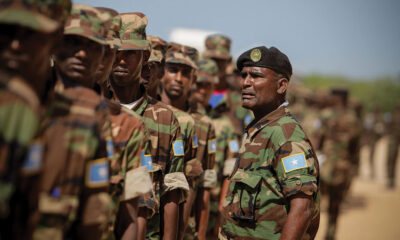

African leaders seek change in fight against terrorism at Nigerian summit
-


Africa’s largest tech hub AfriLabs welcomes 16 new additions
-


Ethiopia’s Lemma, Kenya’s Obiri give Africa double podium finish at Boston Marathon
-


Briton Russell Cook makes history as first man to run the length of Africa
-
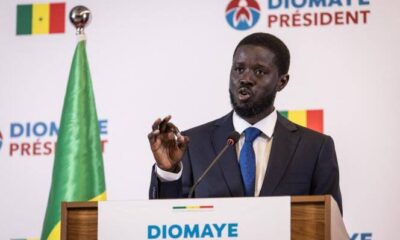

Behind the News: All the backstories to our major news this week
Strictly Personal
This Sudan war is too senseless; time we ended it, By Tee Ngugi
Published
4 days agoon
April 28, 2024
Why are the Sudanese Armed Forces (SAF) and the paramilitary Rapid Support Forces (RPF) engaged in a vicious struggle? It is not that they have ideological, religious or cultural differences.
Not that people should fight because of these kinds of differences, but we live in a world where social constructions often lead to war and genocide. It is not that either side is fighting to protect democracy. Both sides were instruments of the rapacious dictatorship of Omar el-Bashir, who was overthrown in 2019.
Both are linked to the massacres in Darfur during Bashir’s rule that led to his indictment by the International Criminal Court for crimes against humanity. They both stood by as ordinary, unarmed people took to the streets and forced the removal of the Bashir regime.
None of these entities now fighting to the last Sudanese citizen has any moral authority or constitutional legitimacy to claim power. They both should have been disbanded or fundamentally reformed after the ouster of Bashir.
The SAF and the RSF are fighting to take over power and resources and continue the repression and plunder of the regime they had supported for so long. And, as you can see from news broadcasts, they are both well-versed in violence and plunder.
Since the fighting began in 2023, both sides have been accused of massacres that have left more than 30,000 people dead. Their fighting has displaced close to 10 million people. Their scramble for power has created Sudan’s worst hunger crisis in decades. Millions of refugees have fled into Chad, Ethiopia and South Sudan.
The three countries are dubious places of refuge. Chad is a poor country because of misrule. It also experiences jihadist violence. Ethiopia is still simmering with tensions after a deadly inter-ethnic war.
And South Sudan has never recovered from a deadly ethnic competition for power and resources. African refugees fleeing to countries from which refugees recently fled or continue to flee sums up Africa’s unending crisis of governance.
Africa will continue to suffer these kinds of power struggles, state failure and breakdown of constitutional order until we take strengthening and depersonalising our institutions as a life and death issue. These institutions anchor constitutional order and democratic process.
Strong independent institutions would ensure the continuity of the constitutional order after the president leaves office. As it is, presidents systematically weaken institutions by putting sycophants and incompetent morons in charge. Thus when he leaves office by way of death, ouster or retirement, there is institutional collapse leading to chaos, power struggles and violence. The African Union pretends crises such as the one in Sudan are unfortunate abnormally. However, they are systemic and predictable. Corrupt dictatorships end in chaos and violence.
Tee Ngugi is a Nairobi-based political commentator.
Strictly Personal
Air Peace, capitalism and national interest, By Dakuku Peterside
Published
2 weeks agoon
April 16, 2024
Nigerian corporate influence and that of the West continue to collide. The rationale is straightforward: whereas corporate activity in Europe and America is part of their larger local and foreign policy engagement, privately owned enterprises in Nigeria or commercial interests are not part of Nigeria’s foreign policy ecosystem, neither is there a strong culture of government support for privately owned enterprises’ expansion locally and internationally.
The relationship between Nigerian businesses and foreign policy is important to the national interest. When backing domestic Nigerian companies to compete on a worldwide scale, the government should see it as a lever to drive foreign policy, and national strategic interest, promote trade, enhance national security considerations, and minimize distortion in the domestic market as the foreign airlines were doing, boost GDP, create employment opportunities, and optimize corporate returns for the firms.
Admitted nations do not always interfere directly in their companies’ business and commercial dealings, and there are always exceptions. I can cite two areas of exception: military sales by companies because of their strategic implications and are, therefore, part of foreign and diplomatic policy and processes. The second is where the products or routes of a company have implications for foreign policy. Air Peace falls into the second category in the Lagos – London route.
Two events demonstrate an emerging trend that, if not checked, will disincentivize Nigerian firms from competing in the global marketplace. There are other notable examples, but I am using these two examples because they are very recent and ongoing, and they are typological representations of the need for Nigerian government backing and support for local companies that are playing in a very competitive international market dominated by big foreign companies whose governments are using all forms of foreign policies and diplomacy to support and sustain.
The first is Air Peace. It is the only Nigerian-owned aviation company playing globally and checkmating the dominance of foreign airlines. The most recent advance is the commencement of flights on the Lagos – London route. In Nigeria, foreign airlines are well-established and accustomed to a lack of rivalry, yet a free-market economy depends on the existence of competition. Nigeria has significantly larger airline profits per passenger than other comparable African nations. Insufficient competition has resulted in high ticket costs and poor service quality. It is precisely this jinx that Air Peace is attempting to break.
On March 30, 2024, Air Peace reciprocated the lopsided Bilateral Air Service Agreement, BASA, between Nigeria and the United Kingdom when the local airline began direct flight operations from Lagos to Gatwick Airport in London. This elicited several reactions from foreign airlines backed by their various sovereigns because of their strategic interest. A critical response is the commencement of a price war. Before the Air Peace entry, the price of international flight tickets on the Lagos-London route had soared to as much as N3.5 million for the economy ticket. However, after Air Peace introduced a return economy class ticket priced at N1.2 million, foreign carriers like British Airways, Virgin Atlantic, and Qatar Airways reduced their fares significantly to remain competitive.
In a price war, there is little the government can do. In an open-market competitive situation such as this, our government must not act in a manner that suggests it is antagonistic to foreign players and competitors. There must be an appearance of a level playing field. However, government owes Air Peace protection against foreign competitors backed by their home governments. This is in the overall interest of the Nigerian consumer of goods and services. Competition history in the airspace works where the Consumer Protection Authority in the host country is active. This is almost absent in Nigeria and it is a reason why foreign airlines have been arbitrary in pricing their tickets. Nigerian consumers are often at the mercy of these foreign firms who lack any vista of patriotism and are more inclined to protect the national interest of their governments and countries.
It would not be too much to expect Nigerian companies playing globally to benefit from the protection of the Nigerian government to limit influence peddling by foreign-owned companies. The success of Air Peace should enable a more competitive and sustainable market, allowing domestic players to grow their network and propel Nigeria to the forefront of international aviation.
The second is Proforce, a Nigerian-owned military hardware manufacturing firm active in Rwanda, Chad, Mali, Ghana, Niger, Burkina Faso, and South Sudan. Despite the growing capacity of Proforce in military hardware manufacturing, Nigeria entered two lopsided arrangements with two UAE firms to supply military equipment worth billions of dollars , respectively. Both deals are backed by the UAE government but executed by UAE firms.
These deals on a more extensive web are not unconnected with UAE’s national strategic interest. In pursuit of its strategic national interest, India is pushing Indian firms to supply military equipment to Nigeria. The Nigerian defence equipment market has seen weaker indigenous competitors driven out due to the combination of local manufacturers’ lack of competitive capacity and government patronage of Asian, European, and US firms in the defence equipment manufacturing sector. This is a misnomer and needs to be corrected.
Not only should our government be the primary customer of this firm if its products meet international standards, but it should also support and protect it from the harsh competitive realities of a challenging but strategic market directly linked to our national military procurement ecosystem. The ability to produce military hardware locally is significant to our defence strategy.
This firm and similar companies playing in this strategic defence area must be considered strategic and have a considerable place in Nigeria’s foreign policy calculations. Protecting Nigeria’s interests is the primary reason for our engagement in global diplomacy. The government must deliberately balance national interest with capacity and competence in military hardware purchases. It will not be too much to ask these foreign firms to partner with local companies so we can embed the technology transfer advantages.
Our government must create an environment that enables our local companies to compete globally and ply their trades in various countries. It should be part of the government’s overall economic, strategic growth agenda to identify areas or sectors in which Nigerian companies have a competitive advantage, especially in the sub-region and across Africa and support the companies in these sectors to advance and grow to dominate in the African region with a view to competing globally. Government support in the form of incentives such as competitive grants ,tax credit for consumers ,low-interest capital, patronage, G2G business, operational support, and diplomatic lobbying, amongst others, will alter the competitive landscape. Governments and key government agencies in the west retain the services of lobbying firms in pursuit of its strategic interest.
Nigerian firms’ competitiveness on a global scale can only be enhanced by the support of the Nigerian government. Foreign policy interests should be a key driver of Nigerian trade agreements. How does the Nigerian government support private companies to grow and compete globally? Is it intentionally mapping out growth areas and creating opportunities for Nigerian firms to maximize their potential? Is the government at the domestic level removing bottlenecks and impediments to private company growth, allowing a level playing field for these companies to compete with international companies?
Why is the government patronising foreign firms against local firms if their products are of similar value? Why are Nigerian consumers left to the hands of international companies in some sectors without the government actively supporting the growth of local firms to compete in those sectors? These questions merit honest answers. Nigerian national interest must be the driving factor for our foreign policies, which must cover the private sector, just as is the case with most developed countries. The new global capitalism is not a product of accident or chance; the government has choreographed and shaped it by using foreign policies to support and protect local firms competing globally. Nigeria must learn to do the same to build a strong economy with more jobs.
EDITOR’S PICK


Nigeria’s food delivery startup Chowdeck raises $2.5m to optimise operations
Nigeria’s on-demand food delivery startup, Chowdeck, has announced securing the sum of $2.5 million in seed funding that will enable...
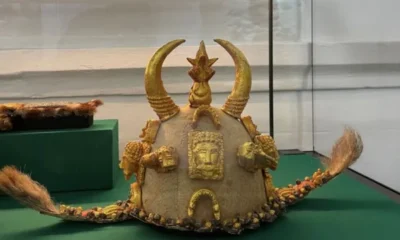

Ghanaians celebrate return of Asante Gold artefacts looted by British
Ghanaians, especially those from the ancient Asante region, have been in joyous mood as they flocked to the Manhyia Palace...
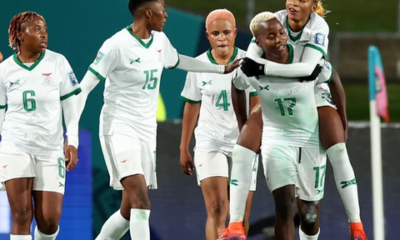

Why Zambia’s women national team could miss Olympics
Zambia’s women national football team is on the verge of missing out on playing at the Paris 2024 Olympic Games....


Religious leader, Luchile, notes improvements in media freedom but faults online media abuse
In this ongoing conversation to amplify voices on media freedoms, freedom of speech, and digital rights, we feature, Maxwell Luchile,...
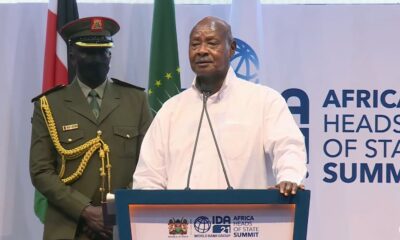

Video: Uganda’s Museveni urges African leaders to verify true motives behind IMF, W’Bank loans
In this video, Ugandan President, Yoweri Museveni, urged African leaders to verify the true intentions of multilateral lending institutions towards...


Nigerian banks close over two million accounts
At least two million bank accounts have been closed by different commercial banks in Nigeria following the failure of their...


Tanzania’s horticultural industry gets $2.1m grant from TradeMark Africa to boost market expansion
The Tanzanian horticultural industry has recieved a grant of $2.1 million from TradeMark Africa to enable it boost its market...
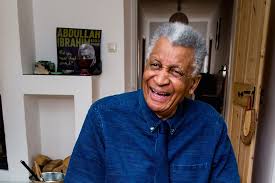

South African Jazz great Abdullah Ibrahim to embark on world tour at age 90
Renowned South African jazz master and pianist, Abdullah Ibrahim, is set to embark on an unprecedented world tour to celebrate...


Kenya unveils ‘killer-squad’ for Paris Olympics marathon Ahead of the 2024 Paris Olympic
Ahead of the 2024 Paris Olympic Games kicking off in July, Kenya has unveiled a “killer-squad” for the marathon event....
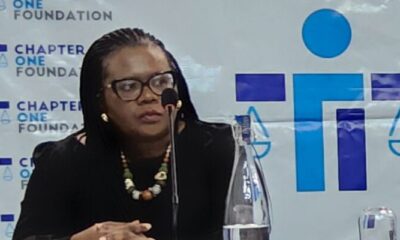

Civil society group says planned online regulation under IBA Act, an affront on media freedom (Video)
Chapter One Foundation Executive Director, Linda Kasonde, says the planned online regulation under the new Independent Broadcasting Authority (IBA) Act...
Trending
-

 VenturesNow1 day ago
VenturesNow1 day agoIn 30 years, half of Nigerian biscuit companies went out of business— Manufacturers
-

 Tech1 day ago
Tech1 day agoTanzania’s horticultural industry gets $2.1m grant from TradeMark Africa to boost market expansion
-

 Sports1 day ago
Sports1 day agoKenya unveils ‘killer-squad’ for Paris Olympics marathon Ahead of the 2024 Paris Olympic
-

 Culture1 day ago
Culture1 day agoSouth African Jazz great Abdullah Ibrahim to embark on world tour at age 90


